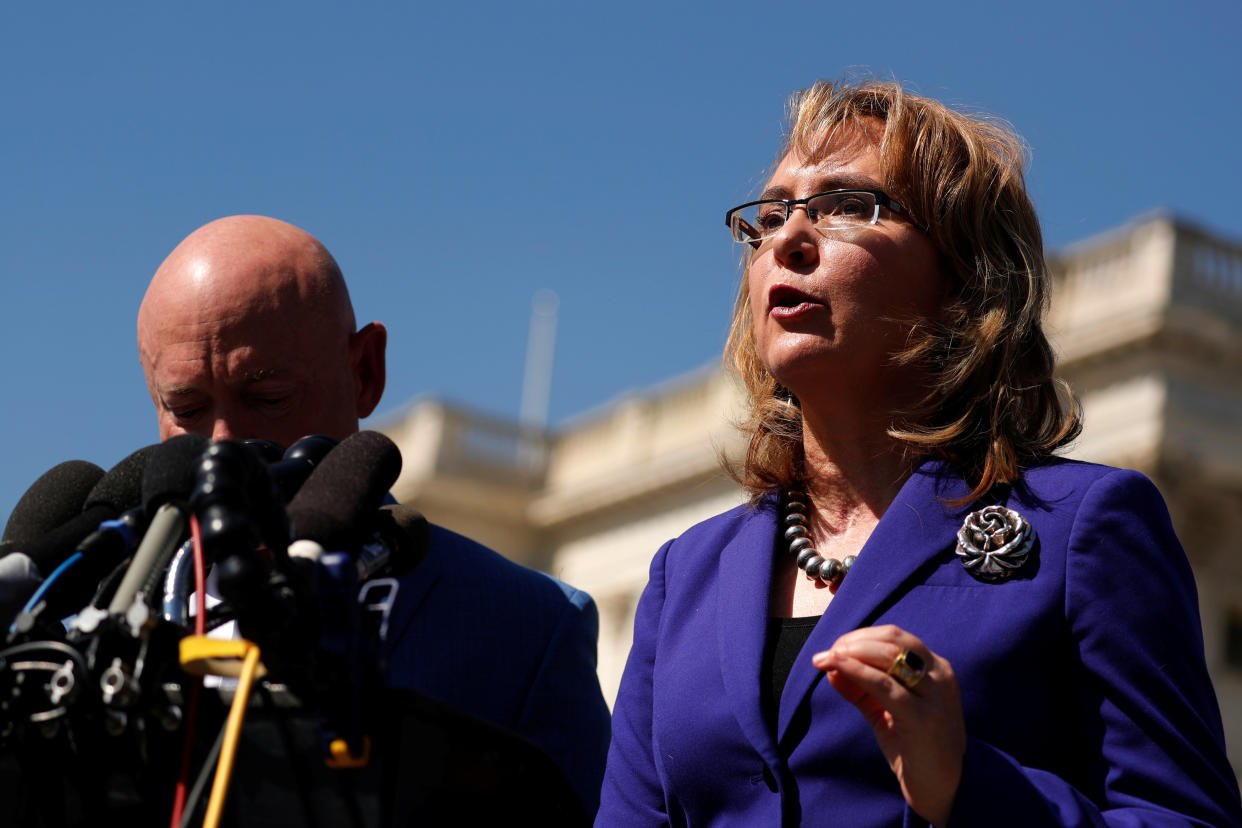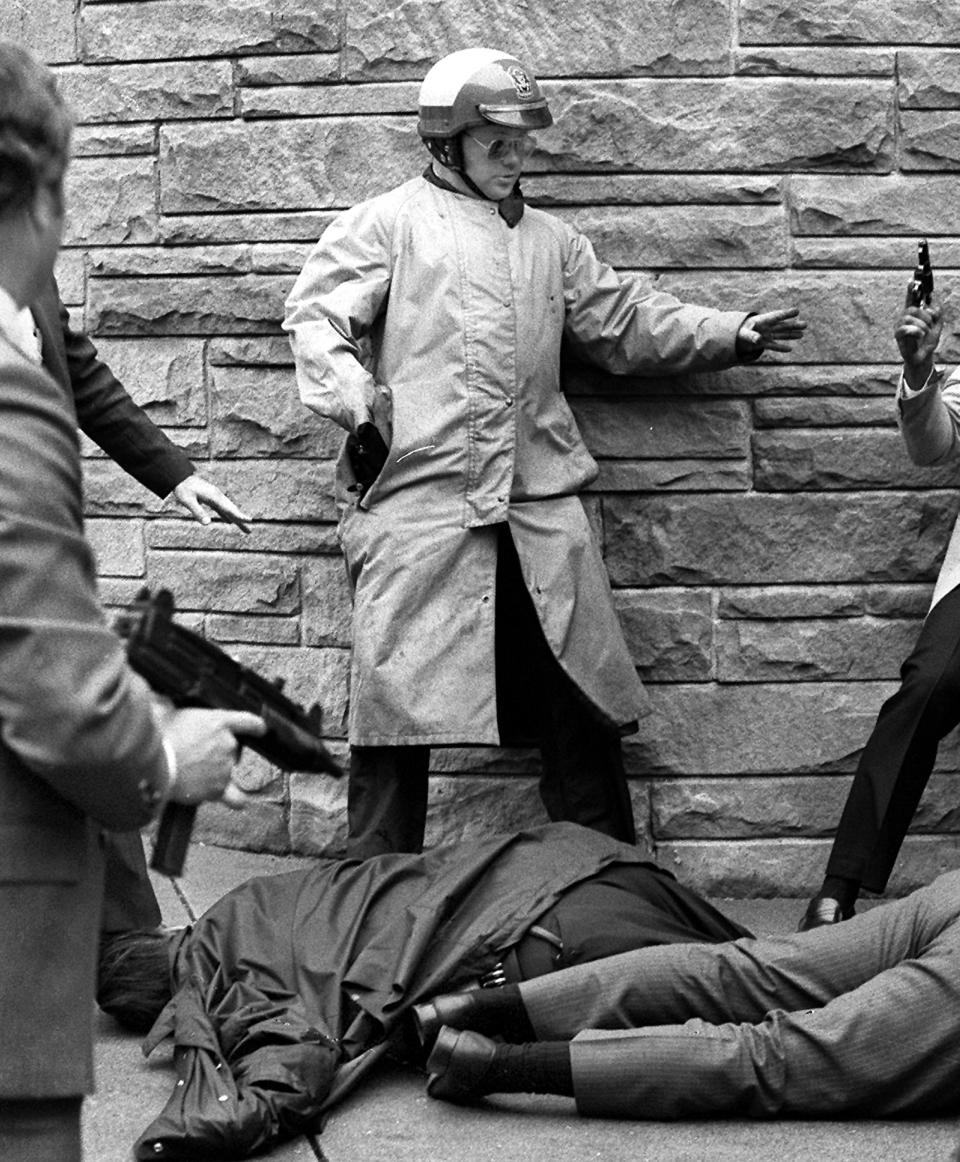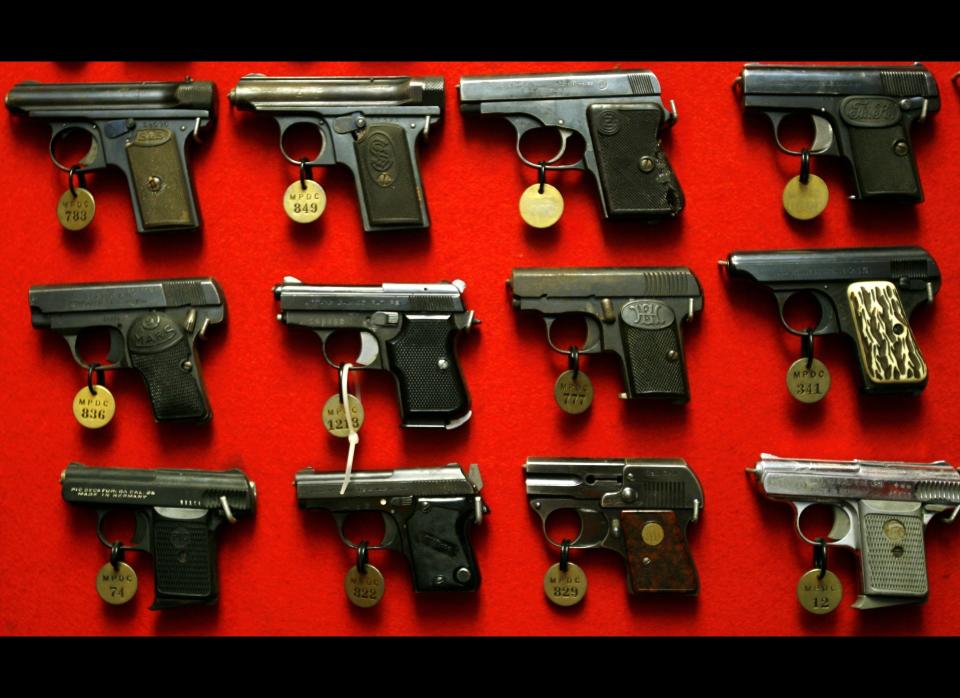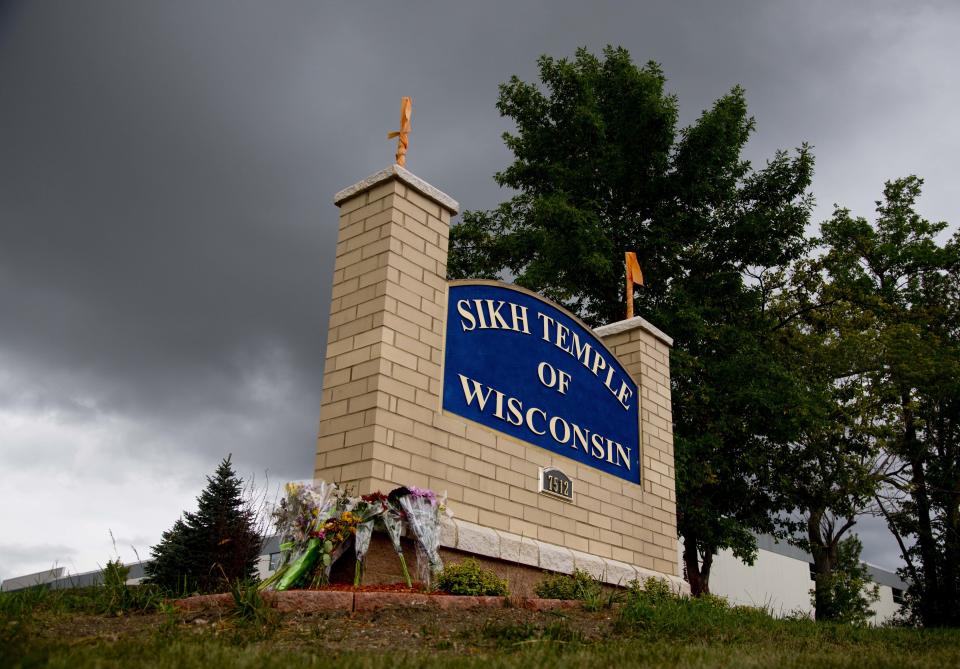Gabby Giffords Asks, 'Is it Safe To Send Our Kids To School?'

Former congresswoman Gabrielle Giffords has begged for politicians to take action on the “gun violence epidemic” in the wake of the Florida school shooting on Wednesday, calling on voters, in an emotional tweet storm, to act to force change.
Giffords, who represented Arizona’s 8th District from 2007 to 2012, was shot in the head in an assassination attempt at an event north of Tucson in 2011. She was left with extensive injuries. Six people were killed and 13 others were wounded in the shooting.
She and her husband, Mark Kelly, have been prominent voices for gun control since that 2011 shooting. In the wake of the Las Vegas Strip shooting last October, Kelly said that, “until we seriously accept this — and the people in that building [the Capitol] accept this — as a serious public health crisis, we will have other mass shootings like this.”
On Wednesday, as authorities confirmed at least 17 people had died in the shooting at Marjory Stoneman Douglas High School in Parkland, northwest of Fort Lauderdale, Giffords posted a series of tweets calling for politicians to reform America’s gun laws.
The accounts from today's school shooting in Parkland, Florida strike fear into all Americans. Is it safe to send our kids to school? Are we safe in our homes and communities?
— Gabrielle Giffords (@GabbyGiffords) February 15, 2018
But our fear cannot compare to what our innocent children felt as the gunshots rang out, bullets flew through the halls of their school, and their teachers and classmates were gunned down.
— Gabrielle Giffords (@GabbyGiffords) February 15, 2018
Even in our grief, we must summon the courage to fight against this fear. We must find the courage to imagine a country where these massacres do not occur. Our leaders must find the courage to escape the confines of their politics & pursue the moral necessity of peace & safety.
— Gabrielle Giffords (@GabbyGiffords) February 15, 2018
If I could offer protection to the 315 Americans who are shot every day, I would. But we can't wall ourselves from the threat of gun violence, nor will we find safety in the deadly cycle of arming ourselves against each other.
— Gabrielle Giffords (@GabbyGiffords) February 15, 2018
The Florida shooting was the 18th school shooting in the U.S. since the start of 2018. That’s an average of one school shooting every 60 hours in 2018, more than double the number of school shootings recorded in any of the previous three years in that same period. Those numbers are according to data compiled by the gun control advocacy organization Everytown for Gun Safety, which defines a school shooting as any time a firearm is discharged on or around a campus.
In her tweets, Giffords took aim at “defenders of the status quo” in politics and the firearm industry who attempt to blame such mass shootings on factors besides the availability of guns. She said that it was possible to prevent future tragedies occurring, criticizing politicians who “vote against our safety.”
Defenders of the status quo - advocates of the gun industry & the politicians paid to defend it - will tell you that events like these are virtual acts of nature, products of mental illness or bad parenting, beyond our ability to control. This couldn't be further from the truth.
— Gabrielle Giffords (@GabbyGiffords) February 15, 2018
Every day we fail to take action, we chose this fate. We tolerate politicians who fail to acknowledge this crisis and vote against our safety. We let our gun violence epidemic continue day after deadly day.
— Gabrielle Giffords (@GabbyGiffords) February 15, 2018
My heart is with the victims and survivors, and my gratitude is with Broward County's courageous first responders.
— Gabrielle Giffords (@GabbyGiffords) February 15, 2018
In a final tweet, Giffords said that “American voters must” take action to vote in politicians who would “find the courage to pass the laws we need to protect our children.”
The question now is if we will find the courage to pass the laws we need to protect our children, to stop dangerous people from accessing guns. And if Congress won't act, American voters must.
— Gabrielle Giffords (@GabbyGiffords) February 15, 2018
Love HuffPost? Become a founding member of HuffPost Plus today.
Also on HuffPost
1981: The Attempted Assassination Of President Ronald Reagan

1993: The Brady Handgun Violence Act

1994: The Violent Crime Control and Law Enforcement Act

2004: Law Banning Magazines Holding More Than Ten Rounds Of Ammunition Expires

2007: The U.S. Court of Appeals For The District Of Columbia Rules In Favor Of Dick Heller

2008: Supreme Court Strikes Down D.C. Handgun Ban As Unconstitutional

Gabrielle Giffords And Trayvon Martin Shootings

Colorado Movie Theater Shooting

Sikh Temple Shooting

This article originally appeared on HuffPost.

